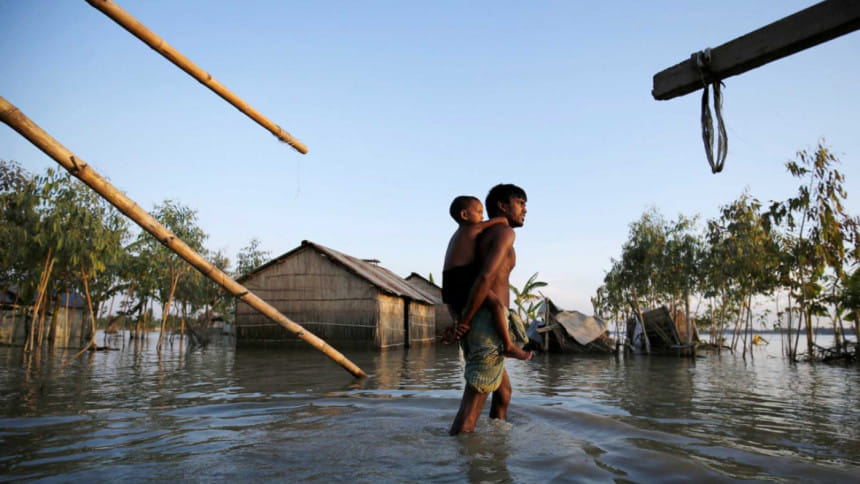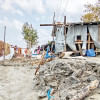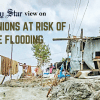Climate change will further widen the class divide

The summer of 2023 has tested the patience and tolerance of Bangladeshis, both in urban and rural areas. This year has seen an unprecedented rise in temperature, breaking many previous records.
The heatwaves are not just confined to Bangladesh but the entirety of Southeast Asia. India, Pakistan Myanmar, Thailand, Vietnam and the southern parts of China have experienced similar spikes in temperature. Even though global warming is concerning for the whole world, it is the countries in the south and southeast that appear to be its biggest victims.
Even though urbanisation is one of the many reasons behind the current crisis of global warming, many might scoff at this idea. This is perhaps because urbanisation is seen as something necessary and inevitable. However, while necessary, we cannot overlook the damages caused this rapid and unplanned urbanisation.
Cities have been built sacrificing trees, hills and rivers. I say this at the expense of sounding naive and repetitive but the truth is that the survival of humankind has come at the expense of decimating nature and will continue to do so.
We see the signs of rapid industrialisation in modern day Bangladesh as well where many families now own more than one private car, something that was extremely rare a few decades back. It is no wonder we spend so much time stuck in traffic. This exponential rise in the number of cars in the country exacerbates air pollution. The gases emitted from a car include the likes of acetaldehyde, benzene and 1,3-butadiene – all of which are associated with various health ailments. In addition to the health consequence, this also seriously affects the troposphere.
Generally speaking, people all over the world are suffering the consequences of climate change. The coming years are likely to feature more extreme weather events – i.e. boiling summers and freezing winters. People who work outdoors are the ones who will unfortunately draw the short end of the stick under these circumstances. Working outside under severe weather conditions often proves to be gruesome and exhausting compared to working inside rooms with air conditioners or heaters. Moreover, people who have to work outdoors are most likely to get sick from inhaling the harmful and polluted air. Yet, the working class appears to have little or no choice of other sources of livelihood. Since Bangladesh has a large number of labourers, they cannot even bargain for better pay. And owing to this, labourers cannot even afford proper treatment in the event of serious illnesses. These people cannot provide their children with proper education and a healthy lifestyle. While there are exceptions but the majority of such families continue to live in this vicious cycle of poverty.
This is a reminder of George Orwell's analysis of the high, low and middle-class categories, where he had noted that the primary objective of the high is to retain the top spot while keeping the low at the bottom. The middle, on the other hand, can sometimes find a way to climb to the top but under extreme circumstances, such as inflation, may struggle to make ends meet and may degrade to low eventually. The class distinction is now more prominent than ever, except that it does not get much recognition by the media of our country.
The understanding of development in our society needs to be re-evaluated. Right now, we have a market driven production strategy. This has to change. By bringing marked changes to our development strategies, we can create an eco-friendly world. But the question is, will we?
Chowdhury Taoheed Al Rabbi
Student, BUP

 For all latest news, follow The Daily Star's Google News channel.
For all latest news, follow The Daily Star's Google News channel. 








Comments